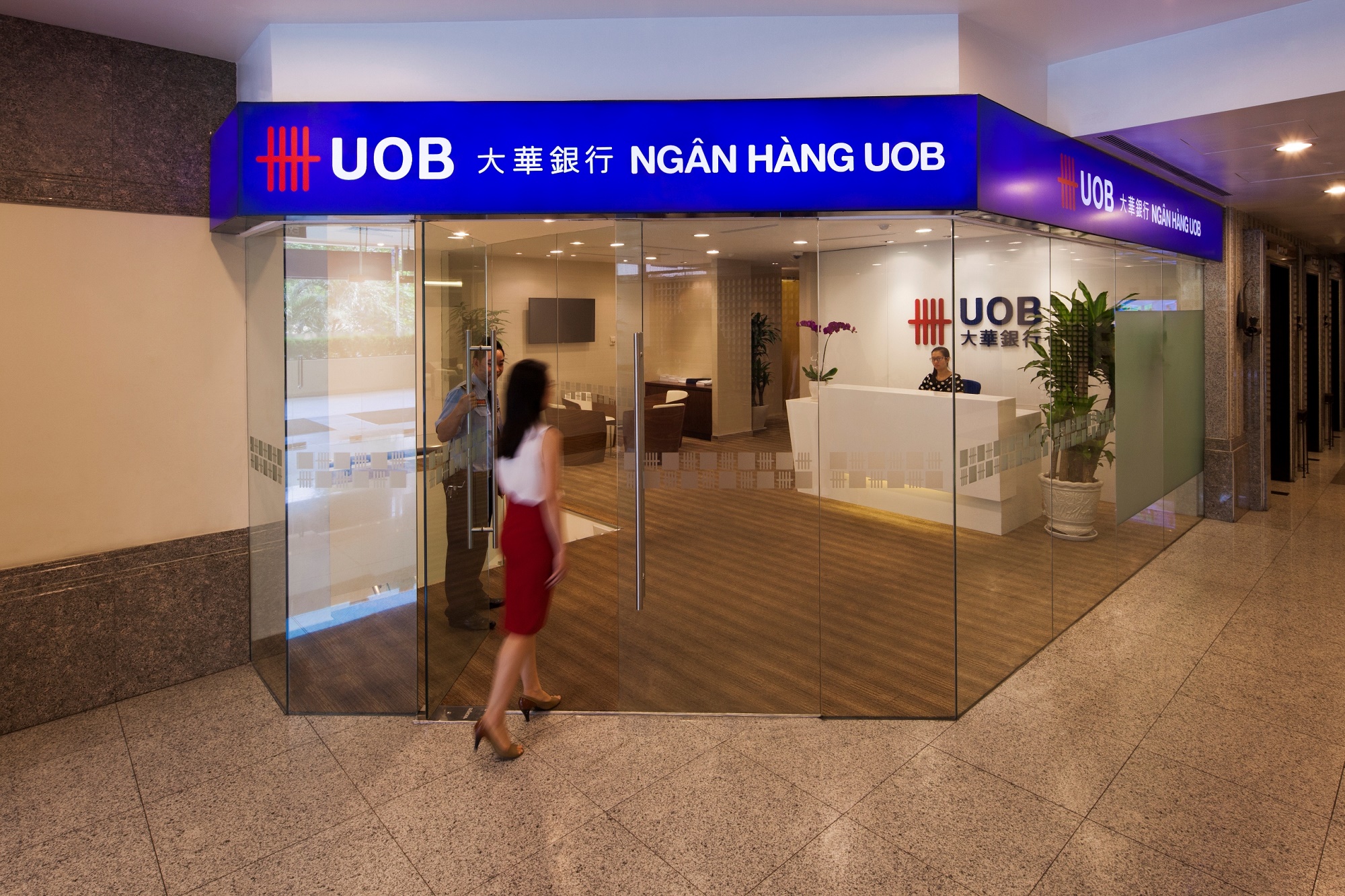Big three grip lion’s share in lending
 |
In the year’s first seven months, Singaporean firms initiated 100 fresh projects in Vietnam, or $2.82 billion, standing second only to Japan in terms of newly-registered capital. The capital is more than double that of the same period last year.
As this influx of Singaporean firms continues, banks such as United Overseas Bank Limited (UOB), DBS Bank, and Oversea-Chinese Banking Corporation Limited (OCBC Bank) – the three largest lenders from Singapore – have made their way to Vietnam to service their countrymen.
UOB, in particular, is the latest entrant, and the first bank from Singapore to obtain in-principle approval from the central bank to locally incorporate in the country. DBS Bank and OCBC Bank, meanwhile, are operating as branches and representative offices in Hanoi and Ho Chi Minh City.
With so much activity from Singaporean industrialists, the question often arises if three lenders, with their current operational statuses, are enough to look after investors both within and outside of Singapore?
According to UOB, since 2013, the lender has facilitated more than $3 billion of FDI from Asia into Vietnam. UOB’s regional clients have invested in industries such as construction, real estate, manufacturing, and fast-moving consumer goods, all of which have been helping to drive Vietnam’s economic growth.
The in-principle licence to set up a subsidiary in Vietnam, according to Wee Ee Cheong, UOB deputy chairman and CEO, will mark the start of a new chapter for UOB in the country. The licence would also enable UOB to extend its branch network beyond Ho Chi Minh City, with considerations on the table to open a branch in Hanoi, and to offer its products and financial solutions to businesses and consumers located in other cities.
UOB will also be able to deepen its support of more Vietnamese companies in their expansion plans, through business advisory services and financial solutions such as trade finance, cash management, and project financing.
“With the foreign-owned subsidiary bank licence, UOB will be able to support more Vietnamese companies in their domestic and regional growth by connecting them to cross-border opportunities throughout our extensive network,” Wee said last month, when the lender received its in-principle approval.
The lenders themselves claimed that they have more than enough resources and expertise to handle the increased business from Singapore in Vietnam.
“There are really only these big three banks [DBS, UOB, and OCBC] who are dominating Singapore’s banking industry,” said Tharabodee Serng-Adichaiwit, the Ho Chi Minh City-based general manager of Bangkok Bank (Vietnam).
“To the best of my knowledge, there is no other prominent local player there. In this case, all of them are not only at the top in terms of size, but also the most profitable banks in this region. I think three of them are more than enough to cover their Singaporean investors in Vietnam.”
Vo Quoc Khanh, a partner in the Financial Services Organisation at EY Vietnam, noted that Singapore’s banking market is rather condensed in the sense that there are only five domestic lenders, and of those five, two are subsidiaries of the lenders themselves.
“Bank of Singapore is a subsidiary of OCBC, while Far Eastern Bank Ltd., is a subsidiary of UOB... There are really only three Singaporean banks, and all of them have had branches in Vietnam for a long period of time,” Khanh said.
According to Serng-Adichaiwit, it is often the case that businesses from a particular country will contact their home-country’s financial institutions first, due to the convenience in language, culture, and business practices.
“Most importantly, it is the proven track record of doing business with those lenders in their home country that consumes less time than starting off again with a brand-new one.
“Vietnam is a unique emerging market where investors need to find ‘know-how’ and ‘know-who’, the so-called local knowledge and connections to run a project successfully, unlike countries like Singapore or Hong Kong where everything is standardised and simple enough to read from manuals and guidelines,” he stated.
Not all Singapore-based investors would necessarily go to their home country’s lenders for loans and services. They have options from many other creditable banks in Vietnam.
Take Bangkok Bank for instance. Serng-Adichaiwit told VIR, “Bangkok Bank Vietnam serves Singaporean businesses in Vietnam. Singaporean businesses have been a significant part of our portfolio, accounting for more than 10 per cent of our lending. One of them, in fact, is ranked as one of our top three biggest customers.”
| RELATED CONTENTS: | |
| Singapore FDI keen to expand | |
What the stars mean:
★ Poor ★ ★ Promising ★★★ Good ★★★★ Very good ★★★★★ Exceptional
Latest News
More News
- New rules ease foreign access to Vietnam equities (February 05, 2026 | 17:29)
- 0.1 per cent tax proposed on each transfer of digital assets (February 05, 2026 | 17:27)
- Ministry of Finance tightens policy delivery at start of year (February 05, 2026 | 17:26)
- Vietnam steps up market reforms as FTSE Russell reviews upgrade progress (February 05, 2026 | 17:20)
- 2025 profits mixed amid strong energy and farming results (February 05, 2026 | 17:18)
- Cashless payments hit 28 times GDP in 2025 (February 04, 2026 | 18:09)
- SSIAM and DBJ launch Japan Vietnam Capital Fund (February 04, 2026 | 15:57)
- Banks target stronger profits, credit growth in 2026 (February 04, 2026 | 15:43)
- Vietnam on path to investment-grade rating (February 03, 2026 | 13:07)
- Consumer finance sector posts sharp profit growth (February 03, 2026 | 13:05)















 Mobile Version
Mobile Version